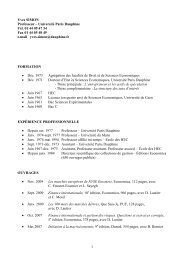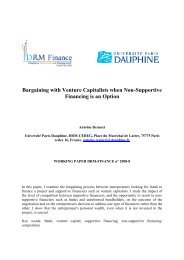Corporate governance and earnings management ... - CEREG
Corporate governance and earnings management ... - CEREG
Corporate governance and earnings management ... - CEREG
You also want an ePaper? Increase the reach of your titles
YUMPU automatically turns print PDFs into web optimized ePapers that Google loves.
(reselling value in a liquidation process). It implies that goodwill is a fictitious or<br />
“embarrassing” asset: immediate or rapid expensing (amortization over 5 years).<br />
(2) The weakened static phase: this is an adjusted form of non-recognition of goodwill with a<br />
write-off against reserves.<br />
(3) The dynamic phase (Richard, 1996, p. 51, 61-62). In that case the basic hypothesis is no<br />
longer the liquidation of the company but the going concern (dynamic) assumption,<br />
however connected with the idea of death of goodwill. It implies the recognition of an<br />
asset with amortization over a long period.<br />
(4) The actuarial phase: it corresponds to the going concern assumption but without the idea<br />
of death of goodwill <strong>and</strong> leads to the recognition of an asset with impairment testing<br />
based on discounted (actuarial) cash flows.<br />
Figure 2 below summarizes the four phases in the evolution of accounting for goodwill in<br />
the four countries studied over the period.<br />
Insert figure 2 about here<br />
3.1. Phase 1: The “embarrassing” asset or non-recognition phase<br />
3.1.1. Great Britain: the static phase (1880 - 1900)<br />
The law <strong>and</strong> court rulings played a practically non-existent role in the treatment of goodwill<br />
in Great Britain, right up until 1990. While one author does point out that “goodwill is<br />
legalized as a ‘fixed asset’, which may remain upon [the] books for an indefinite period” <strong>and</strong><br />
there is no need “to provide for its extinction” (Gundry, 1902, p. 662), he also believes that<br />
“this is not advisable” for accountants, who have an essential role to play <strong>and</strong> whose duty it is<br />
to “draw ... shareholders’ attention to such a case” (1902, p. 662). The same opinion had been<br />
expressed earlier by Guthrie (1898, p. 430), <strong>and</strong> was later taken up by Dicksee <strong>and</strong> Tillyard<br />
(1920, p. 70): “The law has not much to say … <strong>and</strong> … leaves accountants to manage their<br />
own business in their own way”.<br />
16



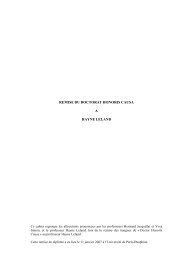
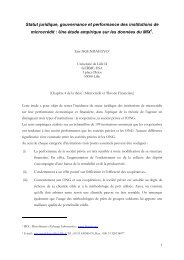
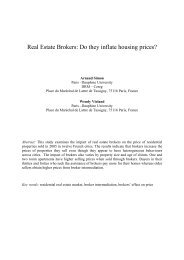
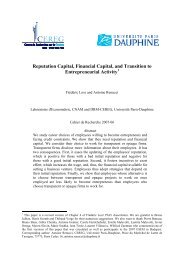
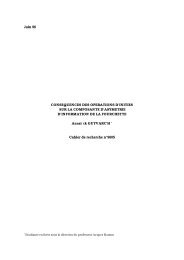
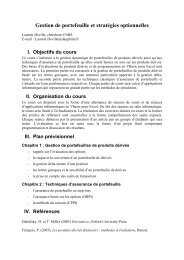
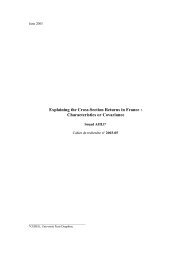
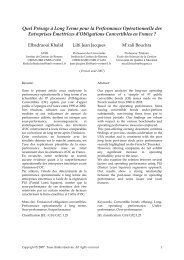

![& 6 ] ^ F ]^ - CEREG - Université Paris-Dauphine](https://img.yumpu.com/33326502/1/184x260/-6-f-cereg-universitac-paris-dauphine.jpg?quality=85)

